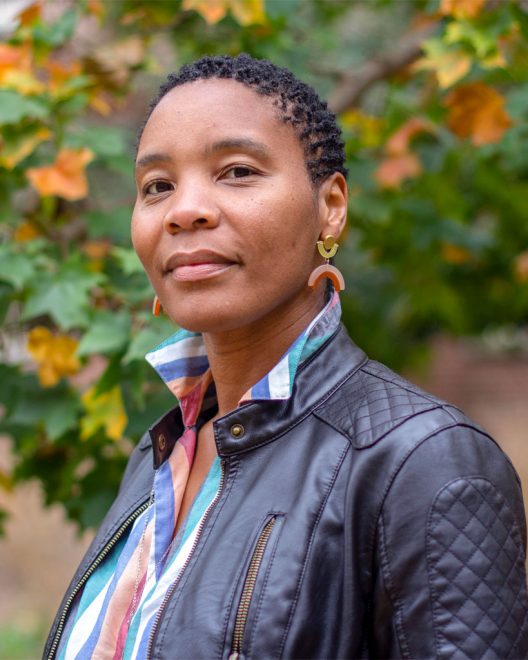
LaVoya Woods-Dionne first learned about doctoral degrees when she was 6 years old. Since that time, pursuing her own post-secondary education has been a major goal.
Her prior career as a Data Analyst for the U.S. Air Force prepared her for success. “Military life relies on a robust system of accountability both professionally and personally,” she says. The cardinal value of accountability – buttressed by the Air Force’s commitment to integrity – meant that Woods-Dionne knew and trusted her support system. “When I was serving, it was comforting knowing that there was always an airman or community member close by should I need support.”
When Woods-Dionne arrived at the University of North Carolina at Chapel Hill in 2017 to pursue a master’s degree in social work, she hoped to find a network available to support her unique needs and goals.
Fortunately, at UNC she found a community of veterans, active duty military, and reserves – as well as faculty and staff – who understood her concerns and supported her as she adjusted to graduate student life. “Before moving here [to Chapel Hill] I wish I’d known there was a military student community I could tap into,” she recalls. “It may have eased some of my anxiety about being an adult learner in a more traditional education setting.” Furthermore, that community encouraged her that her military background was an asset. Integrity, one of the Air Force’s core values, was also paramount in graduate school. The habits and discipline Woods-Dionne learned in the military was another advantage. “The pace and intensity of military work overseas equipped me to handle the simultaneous demands of coursework, research assistantships, and internships,” she notes.
Woods-Dionne plans to use her master’s degree in social work to help raise awareness of the effects of trauma and oppression and promote healing. In 2017-18 she worked as an intern at the Refugee Wellness Initiative on issues related to the mental health of recently arrived refugees. She plans to become a licensed clinical social worker and pursue her doctoral degree two years after receiving her master’s degree.
Despite her eagerness to graduate and help others, Woods-Dionne will miss the campus that helped her transition into civilian life. The Queens, N.Y., native has grown accustomed to the more relaxed pace of the South, noting that it has helped her preserve a healthier balance between her schoolwork and social life. “Chapel Hill and its proximity to Raleigh and Durham give me the slower life of Southern porches and sweet tea while also feeding the academic in me that thrives in rigorous study.”
To learn more about LaVoya’s work, visit Graduate Student Diversity.
